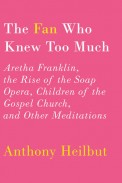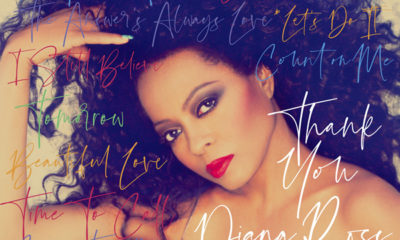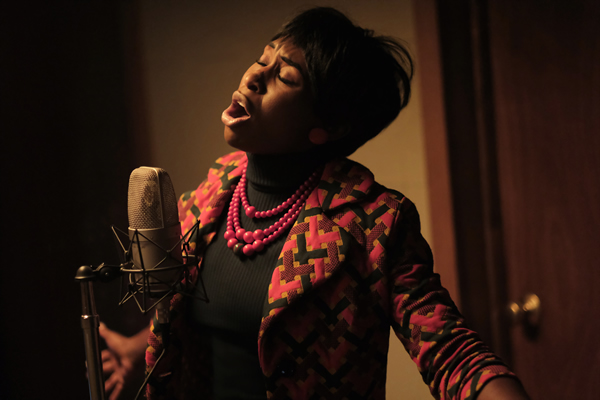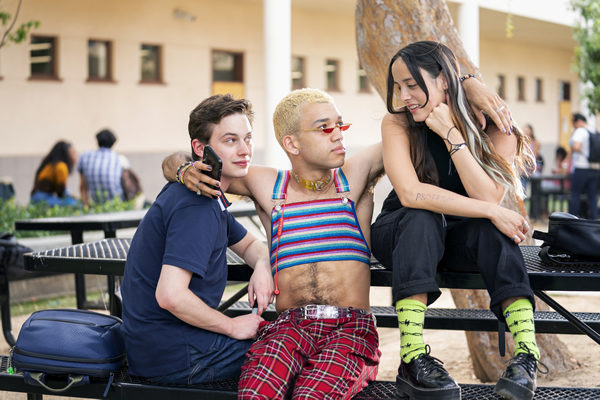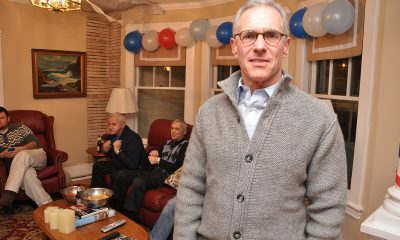Arts & Entertainment
Life-long ‘Fan’
Gay writer explores, Aretha, gays in black gospel and more
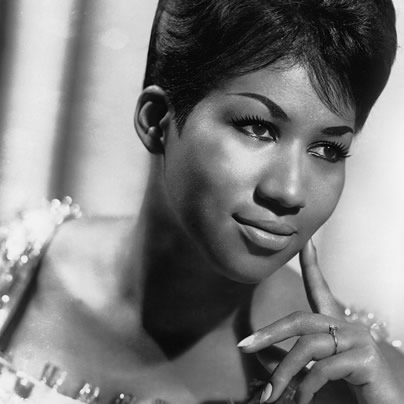
‘The Fan Who Knew Too Much’
By Anthony Heilbut
Knopf
$30
354 pages
anthonyheilbut.comAretha Franklin concert
Saturday, Nov. 17
7:30 p.m.
DAR Constitution Hall
1776 D Street, NW
$59.50-115.50
ticketmaster.com
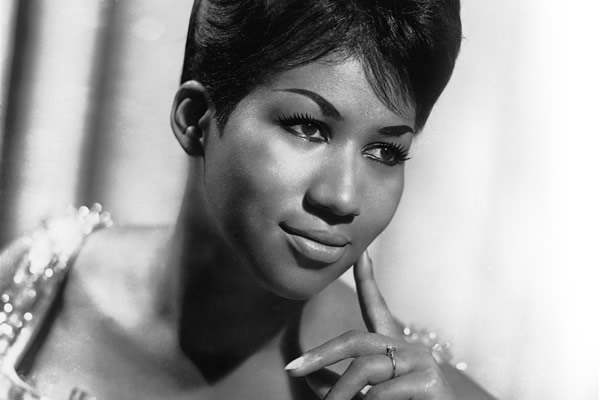
Vintage early ’60s promo still of Aretha Franklin during her Columbia Records years. (Photo courtesy of Sony Music Entertainment)
In a roundabout way, there’d be no rock music without gays and lesbians.
That’s the assertion of gay New York-based writer/historian Anthony Heilbut. In a sprawling, juicy tome that’s as gossipy and anecdotal as it is academic, he writes in “The Fan Who Knew Too Much” that there would have been no golden age of black gospel music (roughly1945-1960) without gays. He, and other rock historians also assert there’d be no mainstream rock and roll without classic black gospel influence.
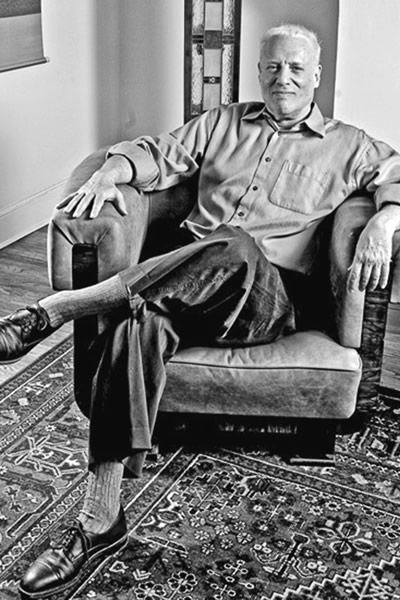
Gay author Anthony Heilbut says Franklin’s underrated work at Columbia Records is her best, contrary to popular opinion, which venerates her later Atlantic Records period. (Photo by Stephen Ladner)
“It means a lot to me that gay people know about this,” Heilbut says during a lengthy phone chat last week. “Gospel is really the most essential American music. Everyone sort of understands that black church singing, it’s really been the center of American singing since the 19th century. It follows through in jazz as well. It’s a great gay contribution.”
Though white and an atheist, as a teen, Heilbut went to hear the great R&B and soul acts of the day at the Apollo in New York. He was often the only white person in the room. He got a heads up from the ushers.
“I think they kind of took pity on this lone white boy,” he says. “They said, if you dig this, you ain’t heard nothin’ yet, the gospel shows are so much better. The showmanship, the vocalism. I came to know almost all the singers and became absolutely enthralled. They were so much more dynamic than their secular counterparts. You just cannot imagine rock and roll and R&B without the influence of these singers.”
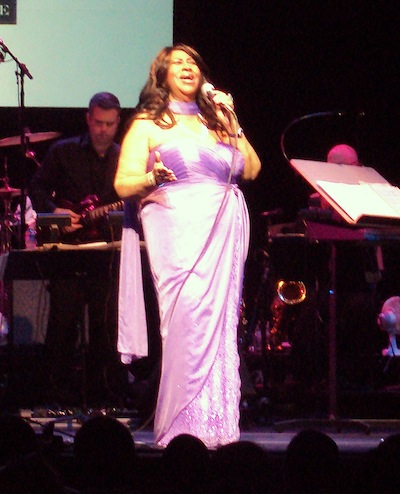
Aretha in concert at Wolf Trap, summer 2011, the last time she played the D.C. market. (Blade file photo by Joey DiGuglielmo)
Heilbut’s book, out earlier this year, is a collection of lengthy essays. Subtitled “Aretha Franklin, the Rise of the Soap Opera, Children of the Gospel Church and Other Meditations,” it includes a lengthy essay on how many black gospel legends — figures like James Cleveland, Clara Ward and others were either gay, lesbian or bi. In the essay “Aretha: How She Got Over” he explores how the soul legend — in town this weekend for a concert at DAR Constitution Hall — integrated the styles of the gospel legends she admired as a teen into the hit secular records she later recorded at Columbia and Atlantic. Though Franklin’s gospel roots are well known, Heilbut extrapolates the richness of those influences in unprecedented ways.
Other essays explore writer Thomas Mann (“The Magic Mountain”), the phenomenon of the male soprano and late soap opera maven Irna Phillips.
One senses, however, that despite Heilbut’s many interests and decades — he’s 71 — of following the careers of many, his heart is most deeply rooted in the gospel music of his youth. He eventually produced records for some of his favorites and writes and shares movingly of not only their great talent, but the hypocrisy with which the church has dealt with — often with scorn and outright condemnation — the contributions of its gay musicians.
Typical of many of the “old school” black gospel establishment, Heilbut quotes the legendary Shirley Caesar as “beseeching the ‘sissies and bull daggers’ to ‘come up and be saved,’ and warning that homosexuals were ‘stealing our children.’”
More analysis than biography, though, Heilbut illustrates how a lifetime of following a singer or musical phenomenon can result in an uncanny insight that the subjects themselves are often loathe to discuss — Franklin, as journalists and long-time fans know, is famously prickly and evasive on many topics.
For the record, Heilbut says Franklin and her legendary father, Rev. C.L. Franklin who became a mid-century legend as pastor of Detroit’s New Bethel Baptist Church — were way more accepting of gays than many others in the era.
Heilbut says Franklin, though not as vocal as some, has made her gay support known in several ways — from singing at a recent same-sex wedding to inviting gay-welcoming clergy (Bishop Carlton Pearson) to comment during a Whitney Houston tribute she hosted during a concert at Radio City Music Hall while Houston’s mother, Cissy, stuck with old school, anti-gay leaders (TD Jakes, Donnie McClurkin) at her daughter’s funeral.
“Aretha does these little things without really saying a word,” Heilbut says.
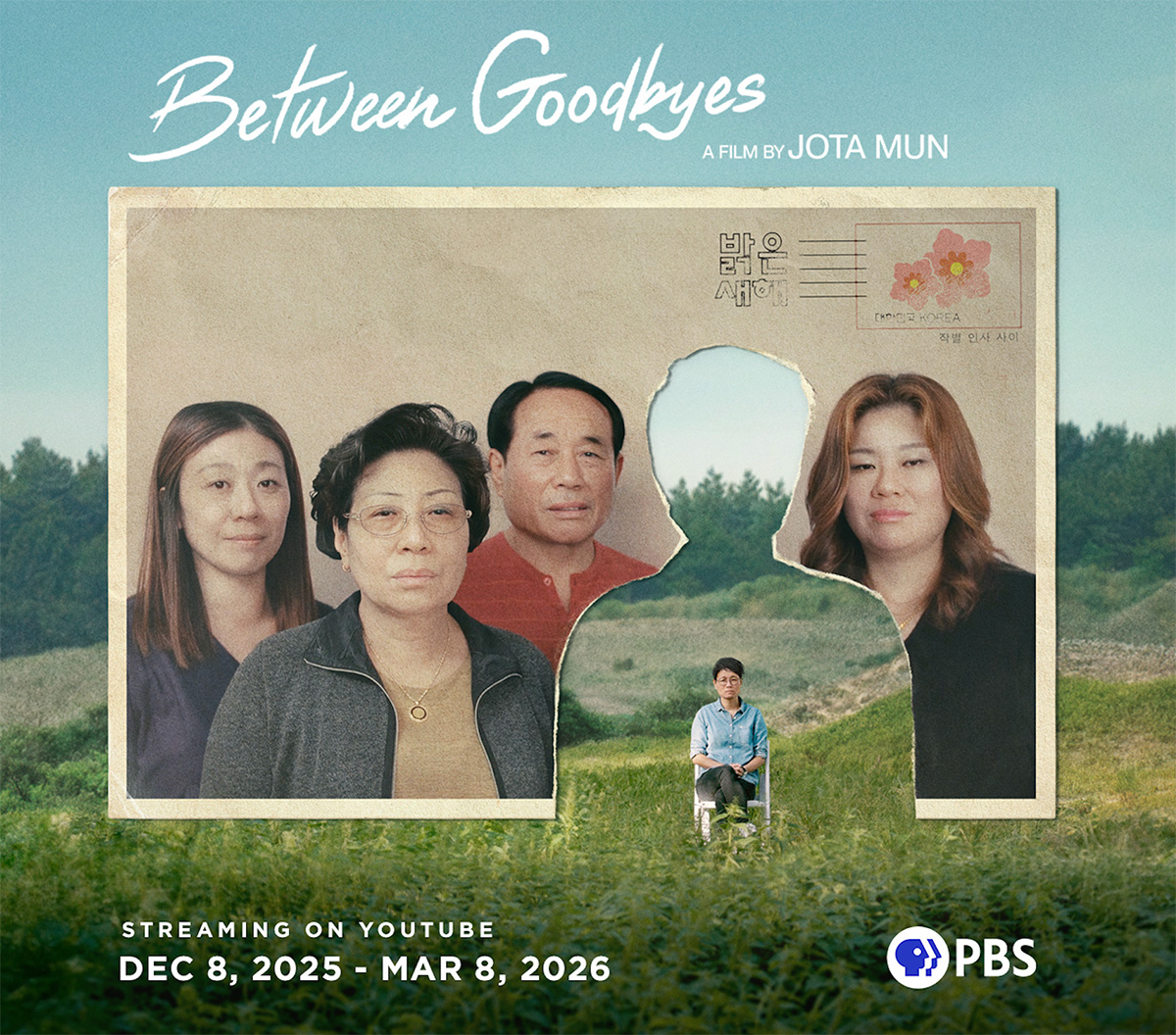
What does longing for your child look like? What happens when they resurface in front of you, when that rift was once an immeasurable open sea — a searing pain that silently hollowed you out for decades? For the child wrenched away by circumstance and thrown into the purgatory of always feeling in-between: in between home, in between being a whole person, in between who you could have been and who you are now — what does it mean to become and belong?
In filmmaker Jota Mun’s documentary “Between Goodbyes”, the fragmented yearning for home, family and identity are woven together into a tremendous and at times dream-like contemplation of the self, focused on various family members set adrift by a deceitful international adoption machine.
The story is focused on Mieke Murkes, a queer Korean adoptee who grew up in the rural village of Vaassen in the Netherlands. Shortly after her birth in 1982, she was raised by Willy, a devout evangelical Christian woman. But the story does not begin with Mieke in Vaassen. It begins with Okgyun, her original mother, walking through an ephemeral meadow as she makes her way to a shoreline. This is our first point of loss.
It is important to understand how the stories of Okgyun and Mieke exist. In “Between Goodbyes”, we see a frustrating glimpse into the cultural and political forces that created this separation. Since 1955, 200,000 children have been adopted from South Korea, and just three years ago, several of these adoptees found that their documents had been falsified. Murkes would sift through her own papers in “Between Goodbyes”, noting their dull and rote descriptions of her physical appearance and health. “The paperwork is as if you’re buying a new car,” Murkes says.
Written nearby: “Both parents are unknown,” a falsehood that leaves the family breathless. It is a gut punch.
This March, a South Korean governmental agency admitted that it had violated the rights of adoptees, but an investigation that began in 2022 at the behest of over 350 Korean adoptees has been halted. Whether or not retribution can ever be paid is up in the air, but the reeling grief and complicated self-reckoning many of these adoptees and their families face are rendered and expressed with deep tenderness in Mun’s documentary. “I did not know how to fit the Korean part of me in there,” Murkes said.
When Okgyun was pregnant with Mieke, she was also raising three other daughters: Mijin, Mikyung and Taekyung. The population was booming, and mothers like herself were being shamed for continuing to have children. Considering abortion, Okgyun recounts a midwife who convinced her not to go through with it — that if the child were a boy, she should keep him. If it turned out to be a girl, she could give her away to live “a good life” in the U.S. “Men are always positioned above women,” Okgyun said. “I always hated that.”
After Mieke was born, Okgyun’s mother-in-law told her to give her away. “She was gone before I saw her face,” Okgyun said. “I let her go.” Her guilt tightens her throat, trembles in her voice. “I dreamed of Mieke a lot. I can’t tell you how many times,” Okgyun said. “Dreaming and forgetting, dreaming, and forgetting. The thought that kept me going is that one day I can find Mieke.”
What ensued was a several years-long search. Kwangho, Mieke’s original father, pleaded with an adoption agency for any leads about Mieke. They denied him several times and his desperation only grew. “I had to find her to be at peace before I die,” he said.
Meanwhile, Mieke’s own grief and confusion were compounding. When she was beginning to discover her queerness, she was deeply ingrained in local religious spaces. What made her feel free, the church treated as an aberration — as behavior that resulted from loss.
When she would eventually meet her original family, they, too, had trouble processing her queer identity and masculine presentation. To them, queerness was “acquired” from being raised in a foreign land. With time, they grew to embrace Mieke and her partner, Marit, even as misunderstandings arose. Of this, Mieke’s conflictedness is explored. Gay rights are more advanced and accepted in the Netherlands than in South Korea, but this does not mean contending with her queerness would have been easy with her adoptive mother, Willy. “It probably would have disappointed her a lot,” Mieke tearfully revealed.
Mieke’s stepping in between knowing and unknowing is reminiscent of Okgyun’s dreaming and forgetting — their grief and confusion move within them, replicating themselves over and over again. “Between Goodbyes” dives deeply into this in order to offer a portrait of healing: of its complications and the necessity of community support to achieve this.
Mun discusses the film with the Los Angeles Blade, diving into how reunification between adoptees and original family members is, in many ways, made nearly impossible by factors like language and cultural barriers enforced and held tightly in place by the international adoption system. This film illustrates a break in this narrative and the mighty efforts behind it all.
A broadcast version of “Between Goodbyes” is now available to stream on PBS. See below for more information.
Can you tell me about the inception of making “Between Goodbyes”? Have you always wanted to tell a story about international Korean adoption from a queer perspective?
As a queer Korean adoptee myself, [there are] so many intersections that I haven’t quite seen on screen before. So I was always really excited about making something about my community. And then I’d say, in 2017, is around when I started getting closer to zeroing in on the idea. I think part of it was through befriending Mieke and hearing her parents’ story. Hearing about their efforts really blew my mind.
So much of the standard narrative is that adoptees initiate the search. So even before meeting [Okgyun and Kwangho], it just felt like it spoke so loudly of not only their character, but a piece of the puzzle that I had never considered — that they could be longing for us. And I think as an adoptee, you always wonder what [your original parents] would think. So it’s very noticeable that we almost don’t ever hear from them directly. Even in narrative stories of adoption, they’re usually deleted, or they’re written in a really flat way that feels like they’re serving the plot. I’ve never seen a depiction of birth mothers in particular who are questioning their own circumstances or feel angry about it.
There’s a lot of nuance given to all of the different people that we see in the story. The pain is layered and deep, and we don’t just view it from one perspective. What was it like having to portray this hurt, when many adoption stories typically focus solely on the adoptee’s emotional and personal journey?
It’s so unique through each lens, even though it’s the same pain. Like her sisters — of course, it’s going to affect them. Even if she never said anything, they must have felt it. It just ripples out to everyone and keeps expanding.
Originally, it was focused on Mieke, because that’s who I had the most access to, and she’s the closest to me in terms of general identity markers. So in my mind, I felt more confident that I could tell her story in a nuanced way. But what about Okgyun? I was hitting a similar barrier of communication that Mieke had hit. That’s part of why our main producer, Zoe Sua Cho, was so essential in conveying more about Okygun and the original family’s side of the story.
When I was in the early stages of developing the film, there was a quote that I felt was really inspirational: “In our hurting, we did not realize that we were stolen from each other” (by SN Désirée Cha from Outsiders Within Writing on Transracial Adoption.) The same quote came back to me in the edit and helped us find a narrative structure that went beyond just one person’s perspective.
What if the main character is the collective trauma, a singular event that causes the family to splinter and suffer across decades? I wanted to explore how tempting it is in these moments of righteous anger at systemic problems to end up fighting with each other. I feel like they both had to mourn something that was so much bigger than any one family. Mieke’s adoption affected so many people that I almost wanted that to be the main character. How do we not get lost in that pain and still try to come back together? It’s too much to carry alone.
So the main character is not necessarily one person, but the issue that you’re trying to tackle throughout the story. It also makes me think about how the documentary itself, or the making of it, also participates in this community healing that I feel like was the focus of “Between Goodbyes”.
I hope it’s an important layer. Suffice to say I think I always deflect to name a singular main character. I wanted to show everyone’s point of view while of course highlighting especially Okgyun and Mieke.
What else can you share about your approach to filmmaking?
You know, I was on this wonderful panel earlier this year, hosted by A-DOC, and I kind of surprised myself in preparing for it. I realized, actually, I have a lot of strong beliefs on filmmaking ethics that I hope come through in the film. For example, I reject the genius artist myth. The fantasy that if an artist is talented enough, they get permission to treat everyone around them terribly. That exploitation and squeezing things out of people is the best way to make great art.
Instead, I want to believe that the sensitivity, the care, and emotional work I poured in is going to come shining through in the film. And I do think that’s part of why we witnessed so many intensely vulnerable moments that I couldn’t have predicted.
This emotional connection to the film is also, visually, represented in artistic and inventive ways. There are sequences interspersed throughout that feel dream-like and cinematic. Creatively, what was it like to structure and craft how you wanted those scenes to be, the weight that they carried, and why you wanted to represent them in that way?
Aw, thanks for saying so! I was clear from the beginning that I wanted certain moments in the film to look as cinematic and epically life-changing as they feel in real life. Because visually, sometimes these moments of heartbreak can look rather dull. The deep heartbreak of a farewell at the airport. What does it look like? It looks like two people hugging in a very normal-looking terminal. But that’s not what it feels like. It feels larger than life. So to me, every single one of the art [scenes] has a very literal symbolism in my mind.
I really enjoy the complexity given to the family, both through the artistic symbolism and through the different angles we get to view them in. When it comes to Mieke’s queer identity, there are varying levels of acceptance and also tension that co-exist. One of her sisters, Mikyung, skirts around terms and labels, instead saying Mieke is “like that,” and “I don’t know anyone like that.” There was this feeling that queerness is learned or acquired elsewhere — that Mieke “wouldn’t have turned out like that” if she had grown up with her original family in Korea.
I can’t be sure what they were implying but you know, I definitely didn’t want to fall into a common trope of seeing Western values as being so liberal and accepting and framing all other cultures as homophobic. I want to be clear that there is a queer community in Seoul. It’s not the same as Amsterdam, of course, but it does exist.
That’s part of why it was important for me to include Mieke mentioned what she thinks her Dutch mom would have thought — just to clarify that homophobes are everywhere. There are plenty of them here in the West as well. Mieke’s Dutch parents were Evangelist Christians. So it’s not like everyone in the West is free to be a lesbian, you know?
Another moment that struck me in the film was a moment where we, as the audience, get to see you clearly. In this scene, we see you and Mieke on a rooftop, and you’re consoling her as she’s trying to prepare for a difficult conversation with her original mother, Okgyun. Did you have to find a balance in terms of being the director of this film and being Mieke’s friend?
It was really important to me to show friendship and how much that can help you along the journey. You think that for her to emotionally process things, it would have to be with her mom. But that rooftop conversation felt so transformative in itself. And then what ended up being the kind of mirror scene to that was Okgyun talking to Ruth [a fellow original mother]. She needed a buddy, too. How many times in life are we like: the opposing party doesn’t need to get it, but if my friend just could — that would give me so much relief and patience to enter the actual conversation with the person I’m upset with.
Being so personally close to Mieke and her family meant that my film was about all people I loved and cared about. I think the documentary field comes from such a long history of an anthropological approach. It’s like, “I’ve helicoptered in, and I just met you, but I’m the expert artist.” I wish the ethos were the opposite; we need to care about everyone, from the participants to the crew. I don’t want the blood, sweat, and tears to come through on the screen. I hope that watching it makes people feel cloaked in tenderness and care.
I was so worried about everyone, probably too much. It’s such a weird thing to ask people to do, to be in a film, so I took that with a lot of responsibility. Be aware of the impact you’re having. I am having an effect on this family’s life. I almost wanted to be like: “Forget my art project.” This is about the rest of their lives as a family, and that’s more important. So it became a light on my path, trying to make decisions as best I could to have a positive impact on their relationship.
It almost made me question my ethics in a different direction. “Am I intervening too much?” And that’s a strange thing: I have to admit I exist. I’m not a fly on the wall. And I think that’s why the conversation on the roof was really the most vulnerable for me, because I was showing myself. I’ve actually been here the whole time, cheering them on or trying to diffuse tension. I set out to make a film about how hard it is to stay in reunion, but now I’ve realized I’ll be heartbroken if their reunion doesn’t last. So in many ways the film was really just a vehicle for my attempt at keeping us all connected across so many distances, and that’s my own emotional journey or connection to their story.
Mun plans to release the full-length film in 2026, along with deleted scenes and additional footage. Up-to-date information can be found on the film’s Instagram page.
Arts & Entertainment
Cynthia Erivo, Eva Victor, and ‘Blue Moon’ bring queer representation to Golden Globe film nominations
Nominees bring needed queer representation to awards race
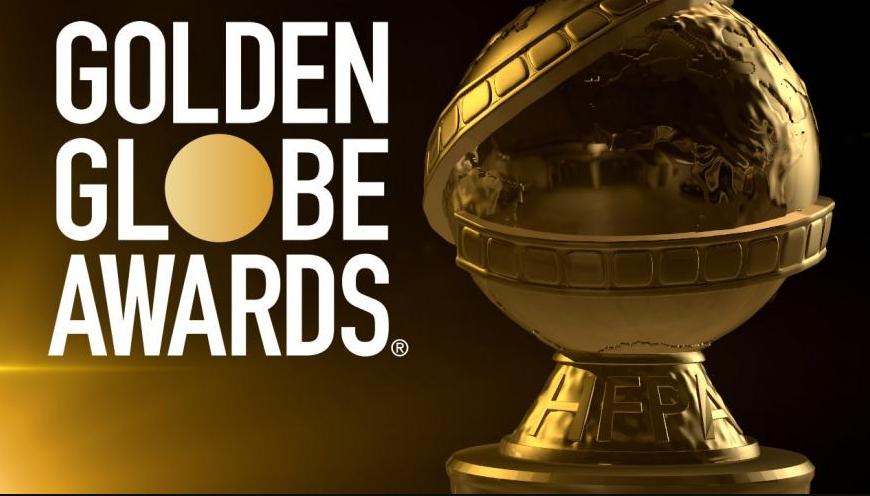
Cynthia Erivo, Eva Victor, and Miley Cyrus are among this year’s Golden Globes nominees, bringing queer representation into an awards race that needs it.
While Ethan Hawke was expected to get in for his lead performance as Lorenz Hart in “Blue Moon,” Richard Linklater’s film surprised by receiving a Best Picture Musical or Comedy nomination (Andrew Scott didn’t make the competitive supporting actor category.) Eva Victor for “Sorry, Baby” and Tessa Thompson for “Hedda” got in for Best Performance by a Female Actor in a Motion Picture Drama, while their films weren’t represented elsewhere. And in the Best Original Song category, Miley Cyrus was nominated for her “Avatar: Fire and Ash” end credit song “Dream As One.”
In notable omissions, “Wicked: For Good” missed a Best Picture Musical or Comedy nomination, signifying that the film will not repeat the same Oscar success of the first despite Erivo (who missed at the Critics Choice) and Ariana Grande getting in here. Erivo notably made history as the first Black actress to nab two lead actress nominations in the Musical or Comedy category. It’s also rare for two performers to get nominated in back-to-back years for playing the same character. The first film wasn’t eligible for original song awards since it exclusively featured Broadway music, but Stephen Schwartz was nominated for writing the sequel’s two new songs, “No Place Like Home” and “The Girl in the Bubble.” Another surprising omission for a Best Picture Musical or Comedy nomination was the JLo-led “Kiss of the Spider Woman,” featuring a central queer storyline.
The Golden Globe nominations are an official indicator that this year’s awards race doesn’t feature many openly queer actors or filmmakers, and Erivo, Thompson, and Victor are all competing in a competitive best actress category that includes the likes of Rose Byrne, Jessie Buckley, Emma Stone, Chase Infiniti, and Amanda Seyfried. That makes their inclusion in the ultimate Oscar line-up unlikely.
Some of these queer films have been more celebrated at the Independent Spirit Awards, where “Peter Hujar’s Day” led the film categories with five nominations, including for Ira Sachs as director and Ben Whishaw in lead performance. “Sorry, Baby” and “Lurker” each received four nominations, while “Twinless” received three nominations. Thompson was also recognized by the Indie Spirits, while Victor received a Best Original Screenplay nomination at the Critics Choice Awards for writing “Sorry, Baby.”
Over on the TV side, Emmy winner Hannah Einbinder was once again nominated for her supporting role for “Hacks,” and the show overall landed three nominations for its fourth season. “The Last of Us” star Bella Ramsey was nominated for Best Performance by a Female Actor in a Television Series Drama, although the show didn’t land any other nominations for its divisive second season. While most of these nominations carry over from the Emmys, “Pluribus” (which is still airing) found its way into the Best Television Series Drama category, indicating that it may be a serious threat for next year’s Emmy awards.
The full list of Golden Globe nominees is available here.
The 83rd Annual Golden Globes will stream live Sunday, Jan.11, 2026, at 5 p.m. PT / 8 p.m.ET on CBS and Paramount+.
Books
‘90s club kids will love Mark Ronson’s new book
‘Night People’ part esoteric hip-hop discography, part biography
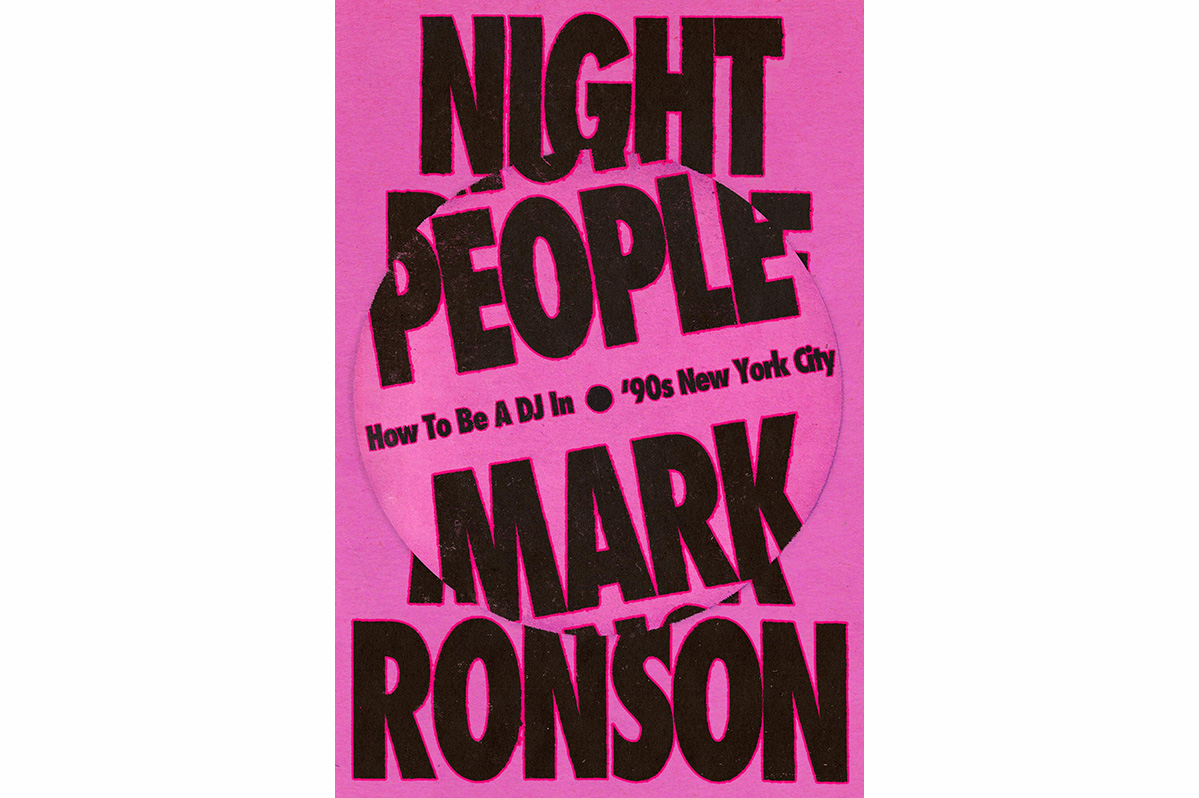
‘Night People’
By Mark Ronson
c.2025, Grand Central
$29/256 pages
You just can’t hold still.
The music starts and your hips shake, your shoulders bounce, your fingers tickle the sky to match a beat. Your air guitar is on-point, your head bops and your toes tap. You can’t help it. As in the new memoir, “Night People” by Mark Ronson, you just gotta dance.

With a mother who swanned around with rock bands, a father who founded a music publishing company, and a stepfather who founded the band, Foreigner, it was natural that Mark Ronson would fall into a music career of some sort. He says he was only 10 years old when he realized the awesome power of music.
As a pre-teen, he liked to mix music in his stepfather’s studio. As a teenager, he formed a band with Sean Lennon that didn’t quite catch on. In the fall of his senior year of high school, Ronson began sneaking into Manhattan clubs to listen to music, dance, and find drugs. It was there that he noticed the alchemy that the DJs created and he searched for someone who’d teach him how to do that, too. He became obsessed.
Finding a gig in a New York club, though, was not easy.
Ronson worked a few semi-regular nights around New York City, and at various private parties to hone his skills. His mother purchased for him the electronic equipment he needed, turntables, and amps. He befriended guys who taught him where to get music demos and what to look for at distributor offices, and he glad-handed other DJs, club owners, and music artists.
That, and the rush he got when the dance floor was packed, made the job glamorous. But sometimes, attendance was low, DJ booths were located in undesirable places, and that totally killed the vibe.
Some people, he says, are mostly day people. For others, though, sunlight is something to be endured. Nighttime is when they when they feel most alive.
Part esoteric hip-hop discography, part biography, part SNL’s Stefan, and part cultural history, “Night People” likely has a narrow audience. If you weren’t deep into clubbing back in the day, you can just stop here. If you were ages 15 to 30, 30 years ago, and you never missed club night then, keep reading. This is your book.
Author Mark Ronson talks the talk, which can be good for anyone who knows the highs of a jam-packed club and the thrill of being recognized for skills with a turntable. That can be fun, but it may also be too detailed: mixology is an extremely heavy subject here. Many of the tunes he names were hits only in the clubs and only briefly, and many of the people he name-drops are long gone. Readers may find themselves not particularly caring. Heavy sigh.
This isn’t a bad book, but it’s absolutely not for everyone. If you weren’t into clubbing, pass and you won’t miss a thing. If you were a die-hard club kid back then, though, “Night People” will make your eyes dance.
Want more? Then check out “What Doesn’t Kill Me Makes Me Weirder and Harder to Relate To” by Mary Lucia (University of Minnesota Press). It’s Lucia’s tale of being a rock DJ in Minneapolis-St. Paul, life with legions of listeners, and not being listened to by authorities for over three harrowing, terrifying years while she was stalked by a deranged fan.
The Blade may receive commissions from qualifying purchases made via this post.
-

 Opinions5 days ago
Opinions5 days agoVictory Fund continues to shun me and my place in LGBTQ history
-

 LGBTQ Non-Profit Organizations4 days ago
LGBTQ Non-Profit Organizations4 days agoVictory Institute honors President Biden
-

 Opinions5 days ago
Opinions5 days agoTammy Bruce, Trump’s lesbian nominee for deputy UN ambassador. Just say no!
-

 Maryland5 days ago
Maryland5 days agoFreeState Justice launches 501(c)(4) group

